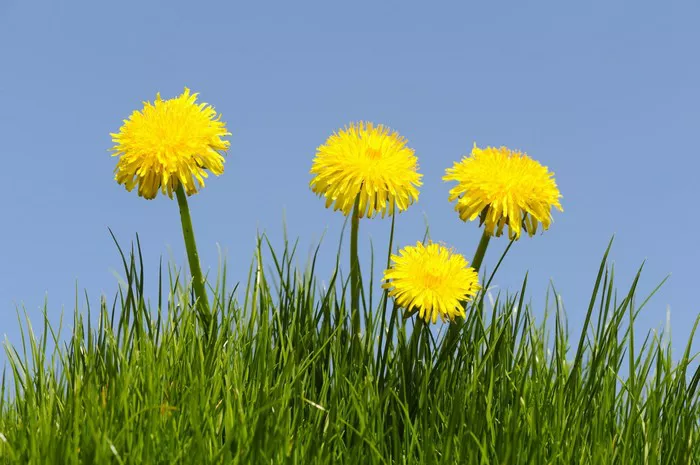Dandelions, often considered a nuisance in lawns and gardens, are surprisingly versatile and beneficial plants with a host of culinary, medicinal, and ecological uses. While many view them solely as invasive weeds, these vibrant yellow flowers possess a myriad of properties that can be harnessed for various purposes. From culinary delights to herbal remedies, and even sustainable gardening practices, dandelions offer a wealth of opportunities for those willing to explore their potential.
Embracing Culinary Creativity
Dandelion flowers are not just pretty to look at; they are also edible and packed with nutrients. Incorporating them into culinary endeavors can add a unique flavor profile and nutritional boost to dishes. The petals have a mildly sweet taste with a hint of honey, making them a versatile ingredient in both sweet and savory recipes.
1. Culinary Delights
One of the simplest ways to enjoy dandelion flowers is by adding them fresh to salads. Their bright color adds visual appeal, while their slightly bitter taste complements other salad ingredients. Additionally, dandelion petals can be infused into oils or vinegars, imparting their delicate flavor and creating infused bases for dressings or marinades.
For those with a sweet tooth, dandelion flowers can be used to make flavorful syrups, jams, or even wine. The petals can be steeped in hot water to make a fragrant tea or infused into desserts such as cakes, cookies, or scones for a unique twist.
2. Herbal Infusions
Beyond their culinary applications, dandelion flowers can be used to create herbal infusions that offer various health benefits. Dandelion tea, made from the flowers, leaves, or roots, is believed to aid digestion, detoxify the liver, and promote overall well-being. The bright yellow petals add visual appeal to the tea and contribute to its slightly floral flavor.
To make dandelion tea, simply steep a handful of fresh petals or dried flowers in hot water for several minutes. For added flavor and benefits, consider combining dandelion flowers with other herbs such as mint, ginger, or lemon balm.
Harnessing Medicinal Properties
Dandelion flowers have a long history of use in traditional medicine, prized for their potent medicinal properties. Rich in vitamins, minerals, and antioxidants, these flowers offer a natural remedy for a variety of ailments.
1. Detoxification and Digestive Health
Dandelion flowers are renowned for their detoxifying properties, particularly in relation to liver health. The compounds found in dandelion flowers, such as flavonoids and sesquiterpene lactones, stimulate bile production and promote the elimination of toxins from the body. Regular consumption of dandelion tea or supplements may help support liver function and improve overall digestive health.
2. Anti-inflammatory and Antioxidant Effects
The antioxidants present in dandelion flowers help combat oxidative stress and inflammation in the body. Studies have shown that dandelion extracts possess anti-inflammatory properties, which may help alleviate symptoms of conditions such as arthritis, gout, and inflammatory bowel disease. Incorporating dandelion flowers into your diet or using them as a herbal remedy may contribute to reduced inflammation and enhanced overall health.
3. Skin Care
Dandelion flowers are not only beneficial when consumed internally but can also be used topically to promote healthy skin. Infusions or extracts made from dandelion flowers can be applied to the skin to soothe irritation, reduce inflammation, and promote healing. Additionally, the antioxidants present in dandelion flowers help protect the skin from damage caused by free radicals, contributing to a youthful complexion.
Sustainable Gardening Practices
Beyond their culinary and medicinal uses, dandelion flowers play a valuable role in sustainable gardening practices. Embracing these resilient plants can help reduce the need for chemical pesticides and fertilizers while promoting biodiversity and supporting pollinators.
1. Companion Planting
Dandelions can be strategically planted alongside other garden crops to attract beneficial insects and improve soil health. Their deep taproots help break up compacted soil and draw up nutrients from deeper layers, making them valuable companions for shallow-rooted plants. Additionally, dandelion flowers attract pollinators such as bees and butterflies, enhancing overall garden productivity.
2. Natural Weed Control
Rather than viewing dandelions as unwelcome invaders, gardeners can harness their tenacious nature for natural weed control. Dandelions compete with other weeds for resources such as sunlight, water, and nutrients, helping to suppress weed growth and maintain a healthier ecosystem. By allowing dandelions to coexist with desired plants, gardeners can minimize the need for chemical herbicides and cultivate a more sustainable garden environment.
3. Soil Improvement
Dandelions are pioneers in disturbed or compacted soil, playing a crucial role in soil remediation and improvement. Their deep taproots penetrate compacted layers, breaking up soil and improving drainage. As dandelion plants grow and eventually decompose, they contribute organic matter to the soil, enriching its fertility and promoting microbial activity. Incorporating dandelions into garden beds or compost piles can help rejuvenate tired soil and support healthier plant growth.
Conclusion
Dandelion flowers, often dismissed as pesky weeds, possess remarkable potential that extends far beyond their humble reputation. From culinary delights to medicinal remedies and sustainable gardening practices, these vibrant yellow flowers offer a wealth of opportunities for exploration and innovation. By embracing dandelions and unlocking their diverse array of benefits, we can tap into nature’s bounty and cultivate a healthier, more sustainable future.


